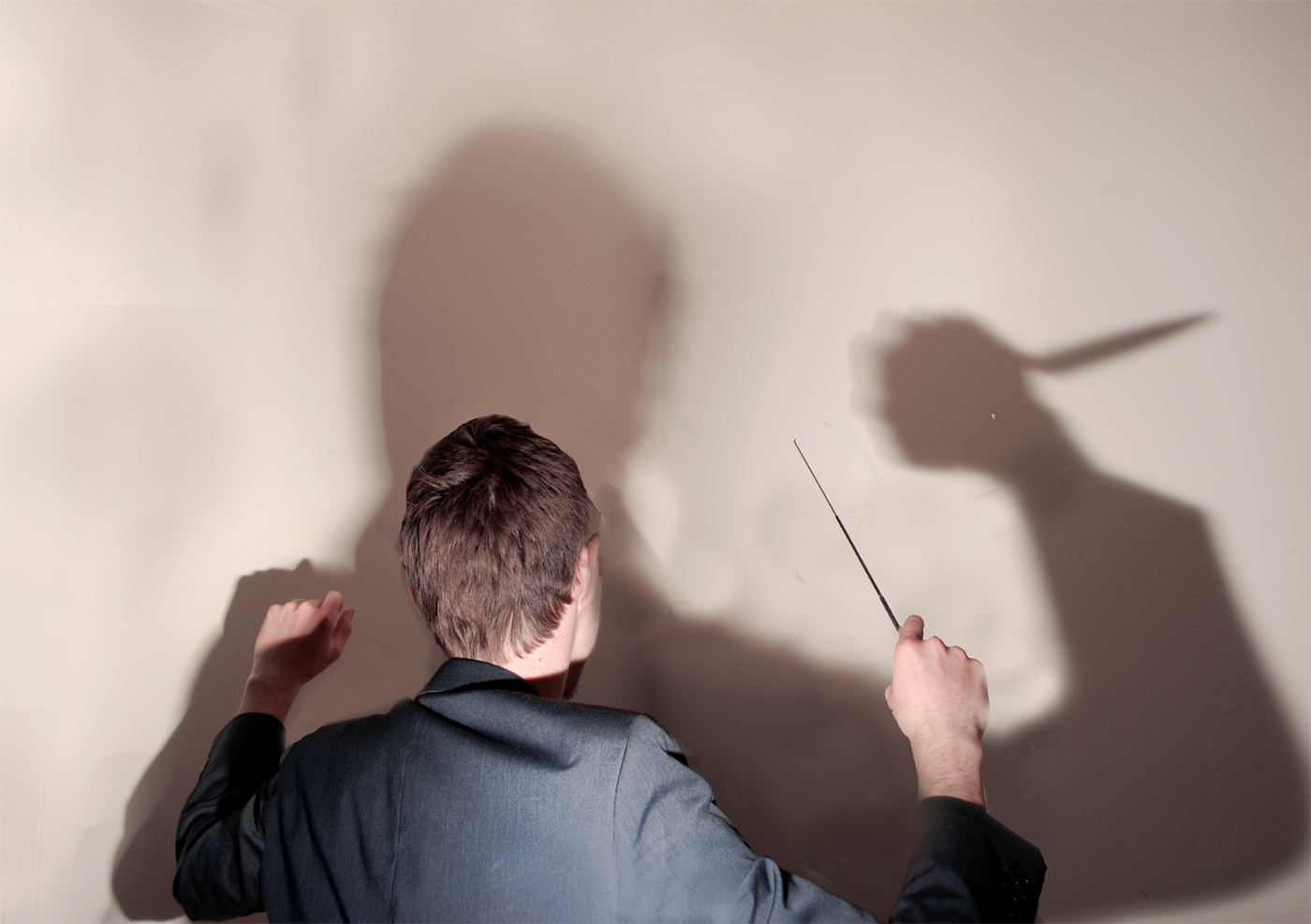The iconic scene in Alfred Hitchcock’s “Psycho” that has made generations scared of shower curtains ever since ““ the beauty of Janet Leigh, a bathtub, a knife ““ owes much of its spine-tingling terror to the accompanying music of intensely screeching violins.
This musical feature is one of composer Bernard Herrmann’s many contributions to Hitchcock’s films. Herrmann worked as the composer for the majority of Hitchcock’s movies between 1955 and 1964, including such classics as “Vertigo” and “North by Northwest.”
The pair’s fruitful collaboration will be celebrated by UCLA Live’s Saturday event, “Celebrating the work of Bernard Herrmann and Alfred Hitchcock with organists Christoph Bull and Stephen Tharp.”
The evening, co-presented by the UCLA Film & Television Archive, will feature Bull and Tharp, two of the world’s premier organists, paying musical homage to Hitchcock and Herrmann. Tharp will play adapted versions of Herrmann’s scores from “The Man Who Knew Too Much,” “Vertigo” and “Psycho,” while Bull will play an improvised score to one of Hitchcock’s early, silent films, “The Lodger.”
The event compromises two distinct parts ““ a chance to hear the film’s classic scores in a concert hall and to hear a new, modern piece serving as accompaniment to one of Hitchcock’s oldest films.
“This is a chance for audiences to appreciate the work of a composer, who you don’t often think about when you go to see a movie because you take for granted that the music is part of the movie,” said Shannon Kelley, head of public programs for the UCLA Film & Television Archive. “This is a case of a very important composer, with a very distinct style, who is now getting recognized that (his scores) are as good as any concert music.”
Composer and UCLA visiting film and television professor Laura Karpman said that the relationship between Hitchcock and Herrmann is one of the most important collaborations in Hollywood history.
“They are inextricably bound. Music is so key to the success of his films, to creating the feel and tone of suspense,” Karpman said. “In a lot of Hitchcock films, I think the score functions as a whole other character. It augments the characters that are there, but it also has its own presence, its own sort of commentary. … Hitchcock’s films are totally served by Herrmann’s scores.”
Karpman begins one of her classes by showing a Hitchcock film to illustrate the importance and power of a good score in shaping a movie’s message, such as the elements of dark comedy “North by Northwest.”
“(The score) rides that really delicate line in creating suspense but also being able to turn into something not more comedic, but something that’s lighter,” Karpman said.
After Tharp has performed Herrmann’s scores, Bull will provide live musical accompaniment to “The Lodger,” Hitchcock’s 1927 silent film that was recently restored by the British Film Institute.
Though “The Lodger” is not Hitchcock’s first film, it is recognized as establishing the stylistic trademarks that would sustain his career for several decades, including discontinuity editing as a technique to build the story without revealing too much information, keeping the audience guessing.
“Hitchcock was very young when he made this film, still in the silent era, but in this film you can see his style, how he creates more and more suspense, and these are things he became known for later in his career, so much so that words like “˜suspense’ almost became synonymous with Hitchcock,” Kelley said.
The suspense of “The Lodger” will be heightened by the live music provided by Bull, the university’s organist and an organ professor in the music department. Having organ accompaniment to the silent film will also recreate the historic experience and give audiences the rare chance to see the film as it was originally intended, Kelley said.
Bull is planning to bring a modern twist to his score for “The Lodger,” playing in a contemporary, minimalist style, though he will also let the film itself and the audience’s reactions influence his music the night of the event.
“One of the reasons I improvise, as opposed to playing from a score while looking at notes and music, is so I’ll be looking at the images just like the audience,” Bull said. “I’m going to be inspired by the visuals, and whatever the audience feels is going to inspire me, too. So I’ve been practicing and getting to know the film, but it will be a unique experience on Saturday.”
